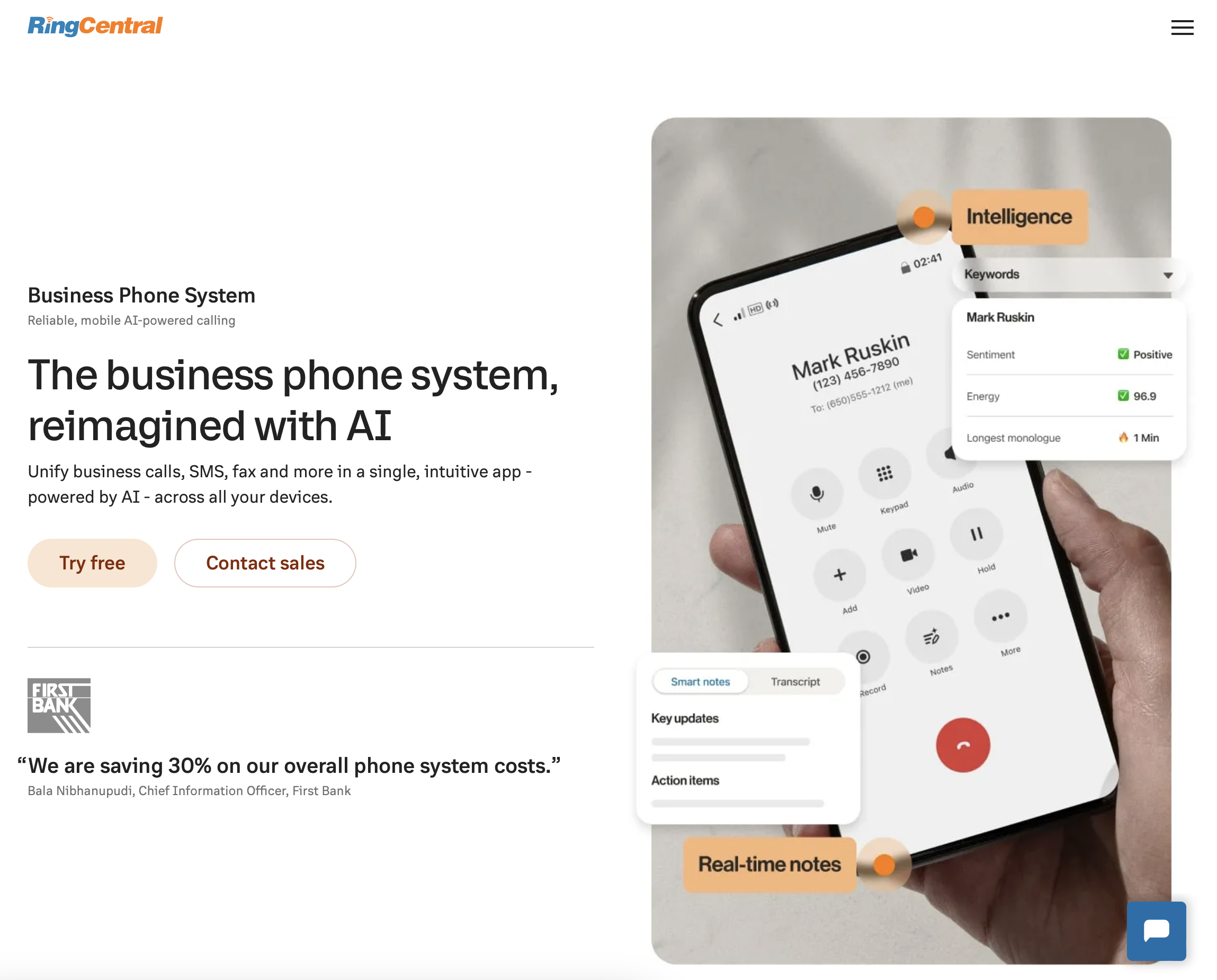TechRadar Verdict
RingCentral Phone offers one of the best and most feature-rich cloud phone services, and should deliver for most businesses. The company has added a ton of features, including a lot of AI tools, to make working that little bit easier.
Pros
- +
Well designed
- +
Easy to use
- +
Comprehensive options
- +
Competitively priced
Cons
- -
Over-complicated feature list
Why you can trust TechRadar
To run business and office space in 2024, finding the best VOIP provider might not be the sexiest task, but it's certainly one of the most essential to have a smooth-running workplace where everyone can communicate easily.
While a cloud phone system may have seemed like science fiction in the recent past, this next-generation communications tech is becoming increasingly popular. More and more businesses are recognizing the value of managed, portable phone systems, and RingCentral is one of the best providers around.
VoIP stands for Voice over Internet Protocol, and the tech basically does just that: transfer calls over the internet, avoiding out-dated landlines and other potential problems. As offices move towards remote working, VoIP providers have added new features into their offerings.
As we dive into our RingCentral Phone review, we put one of the industry’s best business phone services through its paces, testing the standout features of this virtual phone system to help your business make the right call.
Of course, it's also worth checking rivals products from Zoom, 8x8, and Dialpad before making any final decisions – being prepared is the key – but our testing found RingCentral offers a complete package.
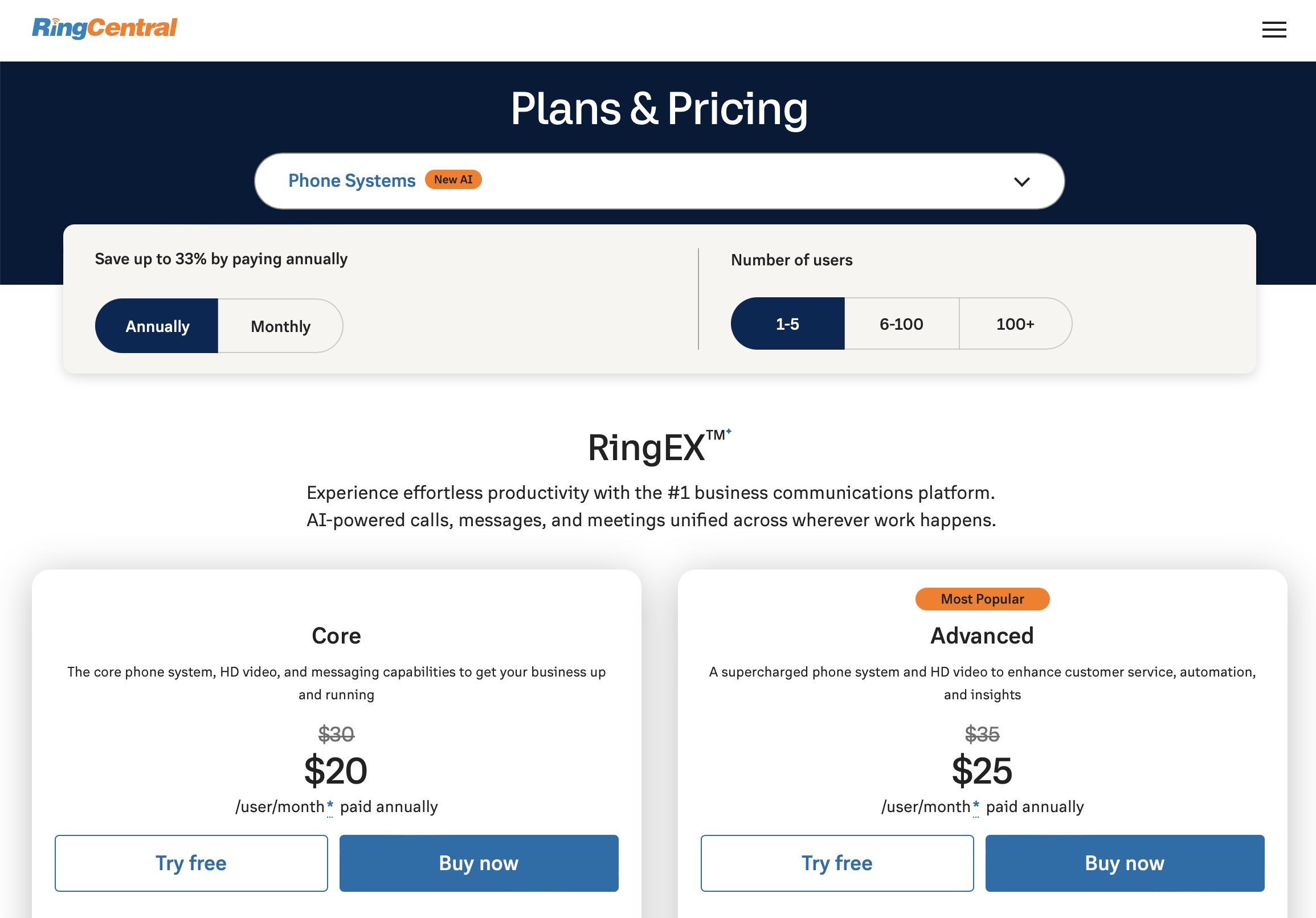
RingCentral: Plans and Pricing
RingCentral offers three plans: Core, Advanced, and Ultra, with each then being tailored to work with anywhere between one and 100+ employees.
Starting off, the Core plan costs $20/user/month for an annual subscription, or $30/user/month for a monthly subscription, and includes business phone or toll-free numbers, up to 100 toll-free minutes, unlimited domestic calls in the US or Canada, visual voicemail, shared lines, and much more.
Sign up to the TechRadar Pro newsletter to get all the top news, opinion, features and guidance your business needs to succeed!
Advanced costs $25 or $35 per month per user and includes everything in Core, plus up to 1,000 toll-free minutes, enhanced business SMS for 100/user/month (up from 25 for Core), advanced call queues, up to eight-digit extensions, hot desking, breakout rooms, and many other features.
Finally, Ultra costs $35 or $45 per month per user and includes all of the aforementioned features alongside up to 200 video call participants, unlimited file storage, custom roles, advanced analytics, workflow customisation, and more.
It's worth checking RingCentral's detailed pricing lists to see if the feature that keeps your business running smoothly comes with Core, Advanced, or Ultra. RingCentral is also keen to encourage annual subscribers, and one-off yearly payments receive an up to 33% discount.
Adding more than 100 users gives a further discount, but that likely only equates to a few dollars saved per month. All plans also come with a 15-day free trial. We were pleased to see how easy it was to scale up too, with options to add international and toll-free numbers as needed.
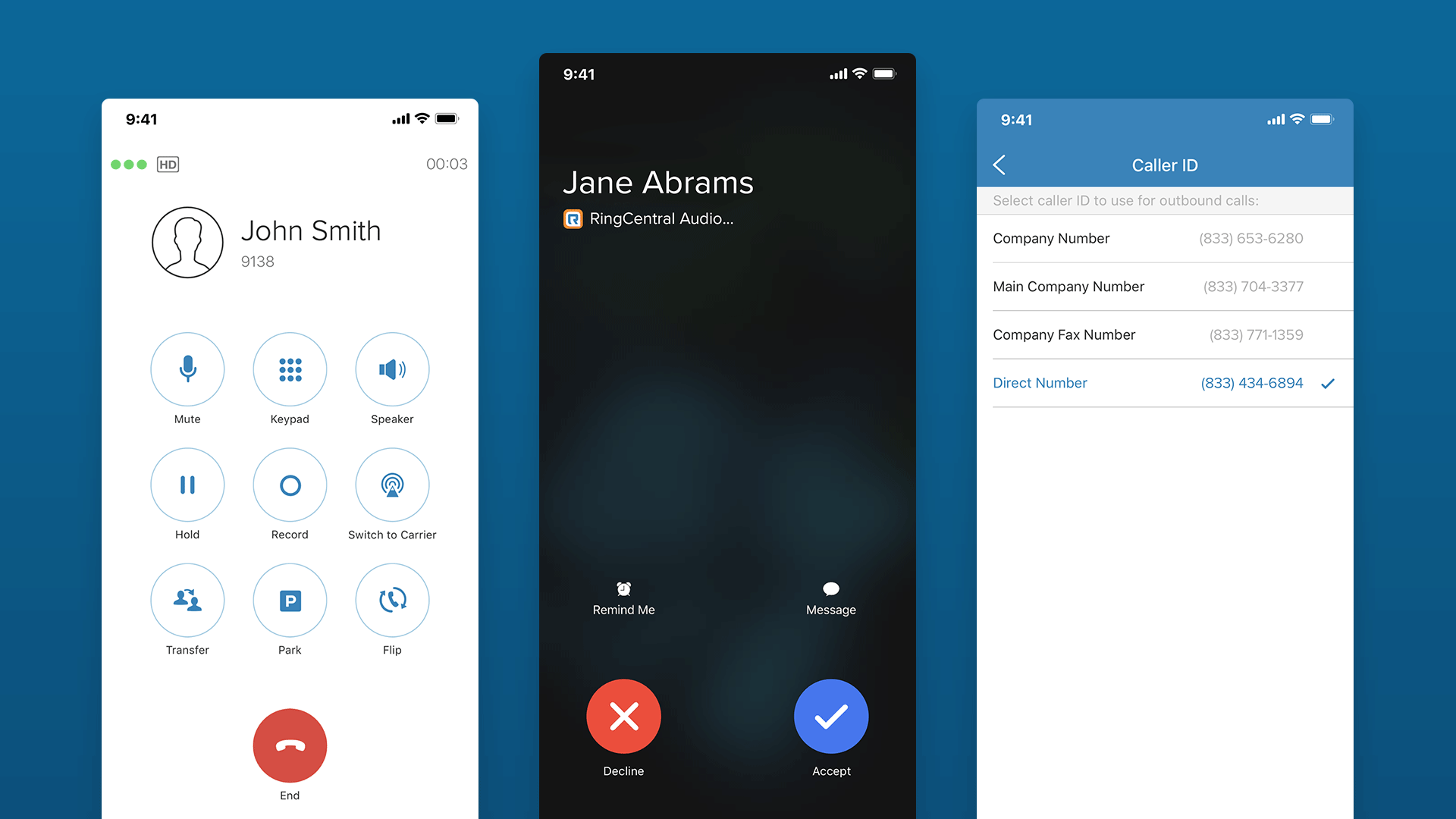
RingCentral: Features
RingCentral’s phone service is packed with features. In fact, there are over 50 in total, which is both pretty staggering and means your specific needs are likely to be met.
Call quality is a very important consideration, and RingCentral ensures HD audio regardless of your calling location. The provider also limits the disruption of switching to a new phone service by helping keep any existing numbers. (There are also options to set up local numbers.)
We found RingCentral’s voicemail-to-email feature particularly interesting as it enables you to receive voicemails whilst out of office – a great feature for remote teams – and it's something few others offer.
RingCentral has also put lot of consideration into incoming-call management, with call screening, call delegation, and call forwarding options available to users. In addition, the Call Flip feature helps users switch calls from a desktop to a mobile phone during a conversation.
As we alluded to above, RingCentral has not scrimped on adding features and pretty much any little thing your business might want to do will be there, from integrations into business apps to call logs to remote desktop control.
The company has also been getting involved in the recent AI craze, adding live transcriptions, closed captioning, video summaries, note taking, translation, and a whole lot more to all three plans, to make life a little easier.
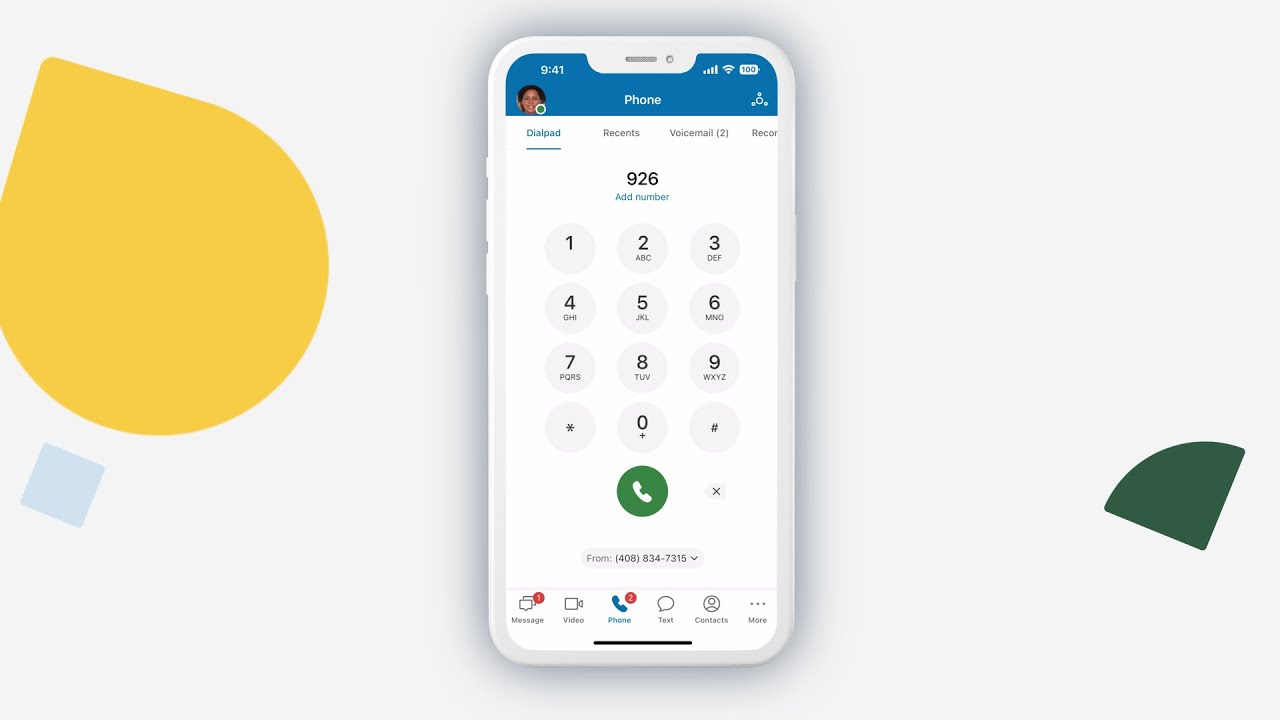
RingCentral: User interface
Once you sign up with RingCentral you’ll need to download the desktop app. The process is quick and easy, and the RingCentral interface is user-friendly and navigable. There are also nifty iOS and Android apps, too.
Any RingCentral users should be aware that the app doesn’t just display the provider’s phone settings: From the admin dashboard, you can access video, messaging, and upcoming tasks. Clear icons on the left-hand side of the screen make accessing any core services easy.
The basic functionality of RingCentral’s business phone service is fairly easy to understand. A pop-up dial pad is there to make calls from a selection of numbers on a dropdown, and voicemails are easily accessible and displayed visually. That said, some advanced features are more difficult to locate.
For example, call screening functions need to be enabled first, and you’ll only be able to confirm that you’ve enabled them when you receive a call. RingCentral offers a great deal in terms of features, but we would have preferred to see them displayed more prominently.
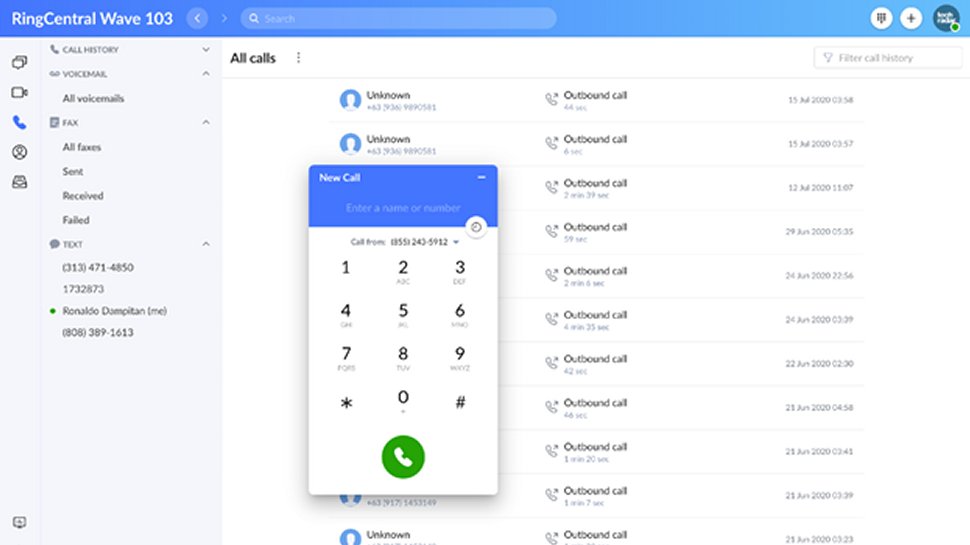
RingCentral: Support
RingCentral has been generous here: 24/7 support is available on all three tiers, which is an improvement on previous generations that only offered such support on more expensive plans.
RingCentral also has a dedicated support website where you can access comprehensive FAQs split up into well-defined categories, consult instructional videos, download technical information, and join its community development group.
The company has a live chat feature too, but with such a comprehensive cache of documentation, you probably won’t need it.
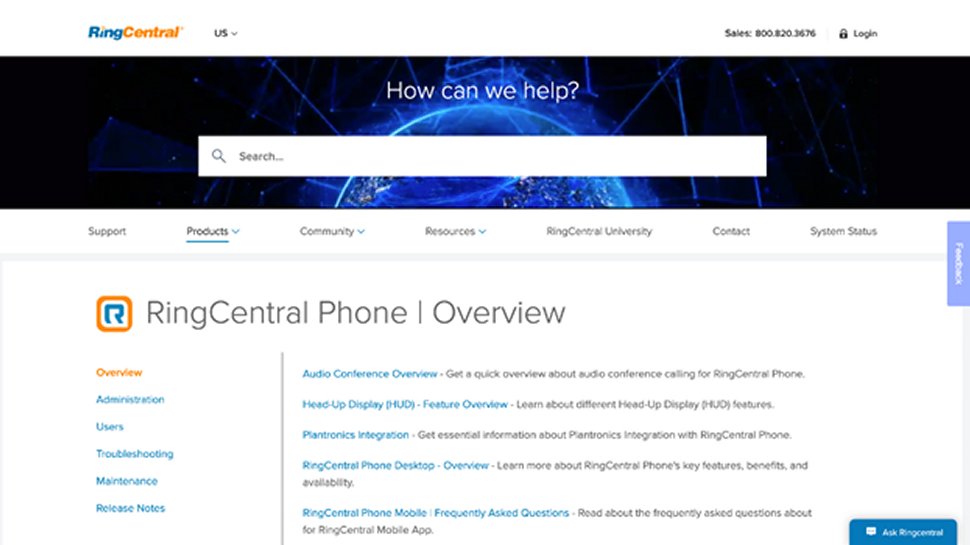
RingCentral: Security
Reliability and security are some of RingCentral’s key concerns. As a result, the measures in place to prevent downtime and disruption to the provider’s service have led to some standout security features.
These include end-to-end network monitoring to ensure performance and real-time analysis of network stability, disaster recovery protocols involving the migration of data to alternative data centers, and cloud-based measures for service continuation even during a period of internet outage.
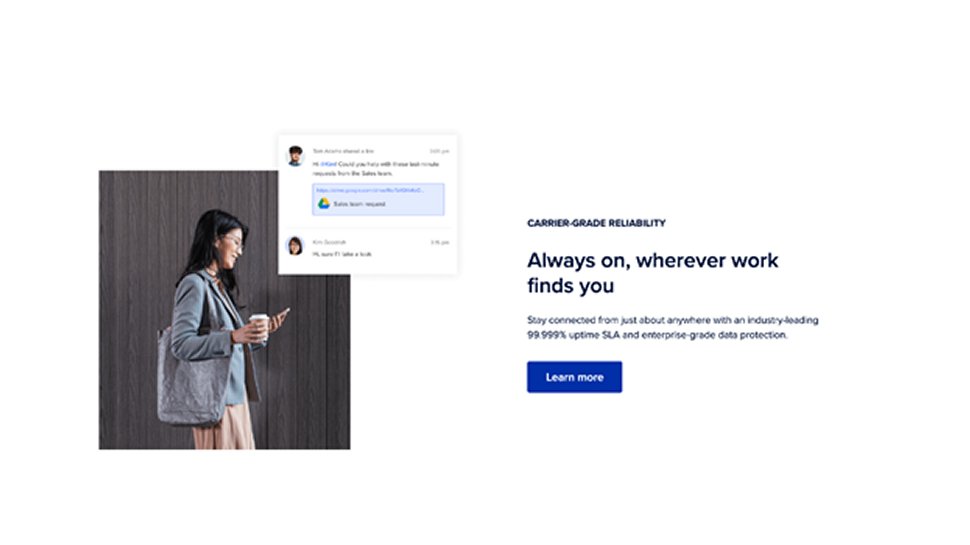
RingCentral: The competition
Nextiva offers a similar service to RingCentral but at a reduced cost – its Enterprise plan is just a few dollars more than RingCentral’s Core plan and includes up to 10,000 toll-free minutes.
That said, RingCentral’s multi-tool platform, with video and messaging facilities, does give it an edge, and the provider’s Essential plan is competitively priced if you don’t need the extra functionality. But small businesses that just want a simple, cheap way to integrate their phone services might prefer Nextiva.
It's also worth checking out offerings from 8x8, Zoom, GoToConnect, Vonage, Aircall, Ooma, and more of the best VoIP services, with your specific needs in mind. Each one is slightly different, and might work well.
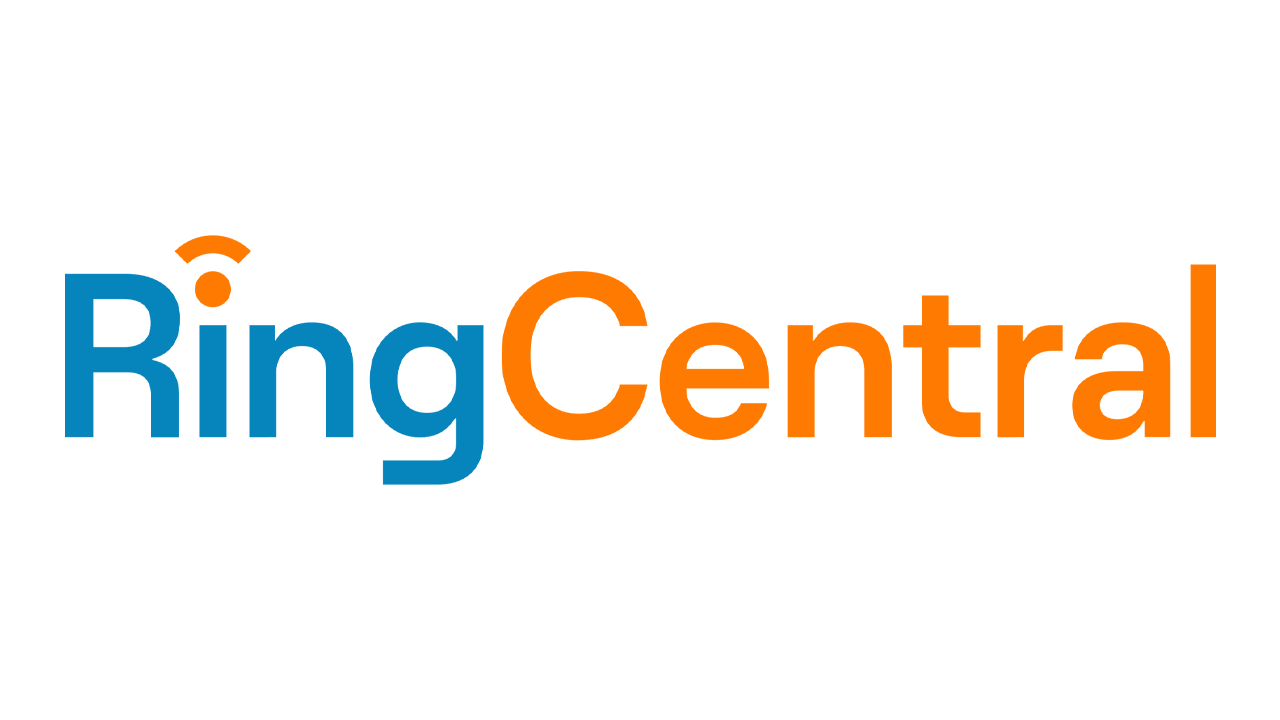
RingCentral: Final verdict
RingCentral is one of the best cloud phone providers available. Clearly, the team behind the platform is well versed in the requirements of business phone users, and the wide range of features tick all the boxes.
However, RingCentral's long list of features might actually over complicate the product, and we would have preferred fewer features but in more accessible places. Of course, having 'too many features' is a small problem if you invest the time in working out how best to use them.
Kieron is a freelance science and technology journalist with more than a decade of experience writing for magazines in print and online. Today, his focus is on cybersecurity, blockchain, and emerging tech.
